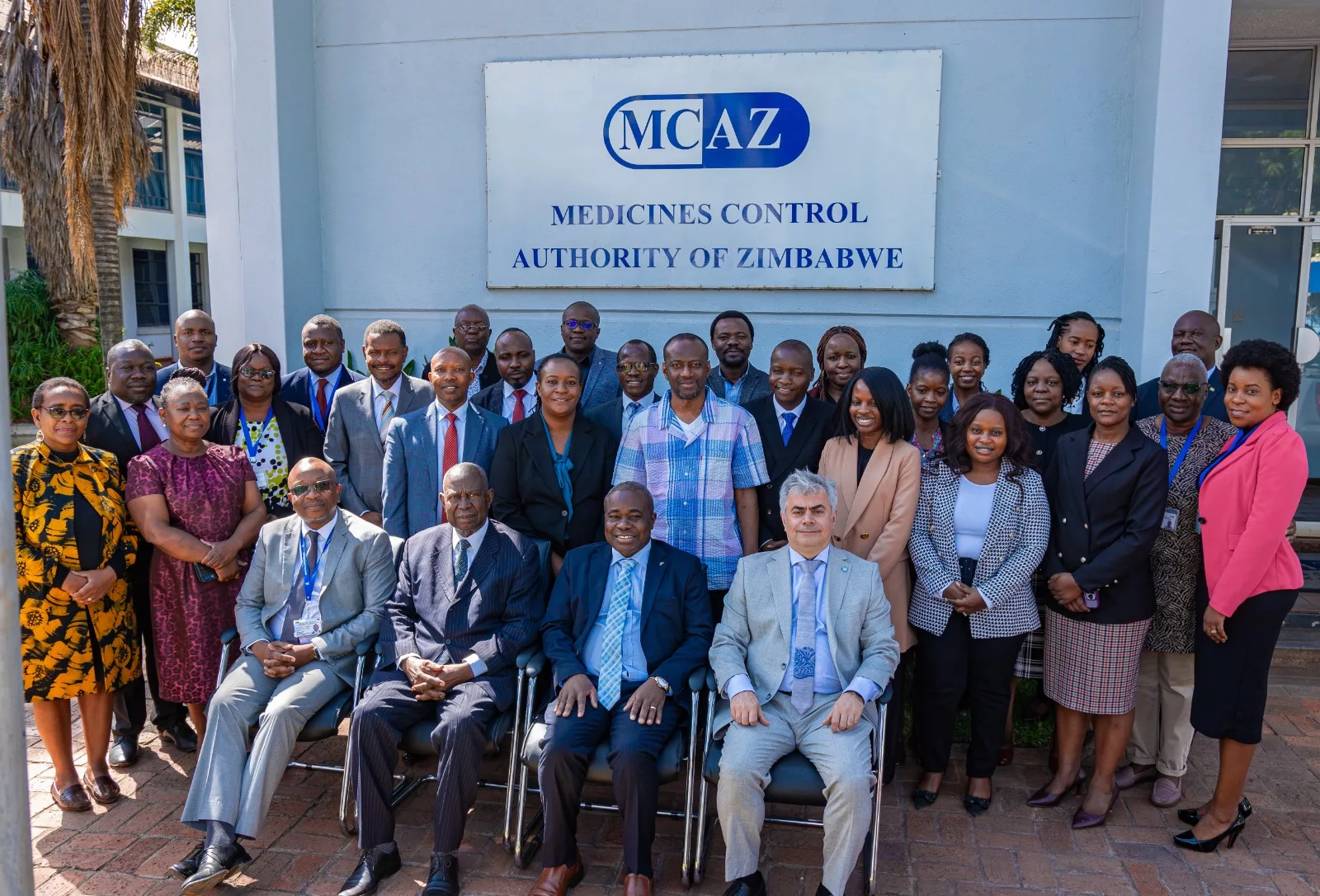|
Getting your Trinity Audio player ready...
|
The Medicines Control Authority of Zimbabwe (MCAZ) is proud to announce that Zimbabwe’s regulatory system has attained Maturity Level 3 (ML 3) for the regulation of medicines and vaccines (non-producing). This achievement follows a comprehensive assessment and the successful implementation of critical recommendations by the World Health Organization (WHO). Zimbabwe now joins the ranks of only six African nations to have reached this significant milestone. These are the United Republic of Tanzania in 2018, Ghana in 2020, the Federal Republic of Nigeria, the Republic of South Africa, and the Arab Republic of Egypt in 2022.
Briefly, Maturity Level 1 means that there is no formal approach or some elements of a regulatory system exist, Maturity Level 2 indicates the existence of a reactive approach or an evolving regulatory system that partially performs essential regulatory functions. Maturity Level 3 signifies a stable, well-functioning, and integrated regulatory system. Maturity Level 4, which is the highest level under this framework, signifies a regulatory system operating at an advanced level of performance and continuous improvement.
Achieving GBT ML 3 signifies that MCAZ has developed a stable, well-functioning, and integrated regulatory system, ensuring the quality, safety, and efficacy of medicines and vaccines registered by the Authority. This status underscores Zimbabwe’s commitment to maintaining the highest standards in public health protection through rigorous regulatory oversight.
“The attainment of GBT ML 3 has been a strategic objective for us as a regulator, reflecting our dedication to safeguarding public health. This milestone demonstrates our capability to effectively regulate and monitor the safety, quality, and efficacy of medicines, vaccines, and medical devices in Zimbabwe. It assures the public and our partners that Zimbabwe’s regulatory framework meets international standards. I commend the MCAZ Board and all our staff for their relentless efforts and commitment to achieving this goal. ” said Mr. Richard Rukwata, MCAZ Director-General.
Mr. Rukwata emphasised that MCAZ has a rich heritage of accolades in the medical products regulatory space, starting with ISO 17025 Accreditation for the laboratory in the year 2010, following that the MCAZ laboratory became one of the first labs on the African continent to be prequalified by the WHO in 2014, leading to MCAZ undertaking analysis of medicines for many other countries on the African continent including the DRC, Angola, Djibouti, Mali, Zambia, Nigeria, Lesotho, Burkina Faso, Congo Brazzaville, Botswana, Sudan and South Sudan amongst others. The prequalification status was renewed this year in 2024.
Further, in 2015, MCAZ was designated as a Centre of Regulatory Excellence by AUDA-NEPAD in the field of clinical trials and marketing authorisation. MCAZ further acquired ISO 9001:2015 in 2018 and ISO 17020 for its inspectorate in 2020.
The above accolades demonstrate that MCAZ has a culture of excellence that has been in existence over a long period and this current achievement solidifies this culture by being another feather in the Authority’s cap and demonstration that MCAZ takes its mandate to protect public and animal health very seriously. MCAZ is particularly very proud of the fact that it achieved this milestone without external help and purely of its own limited resources. This further goes to show the Authority’s commitment to delivering on its mandate regardless of the obstacles it might face.
Mr. Rukwata further expressed gratitude for the support and collaboration from stakeholders, including the Ministry of Health and Child Care, local industry players, and the Zimbabwean public noting their invaluable contributions to this achievement.
The journey to ML 3 involved extensive reviews and enhancements of regulatory policies, procedures, and practices. Key focus areas included strengthening pharmacovigilance, ensuring robust market surveillance, and enhancing regulatory inspections and enforcement mechanisms.






